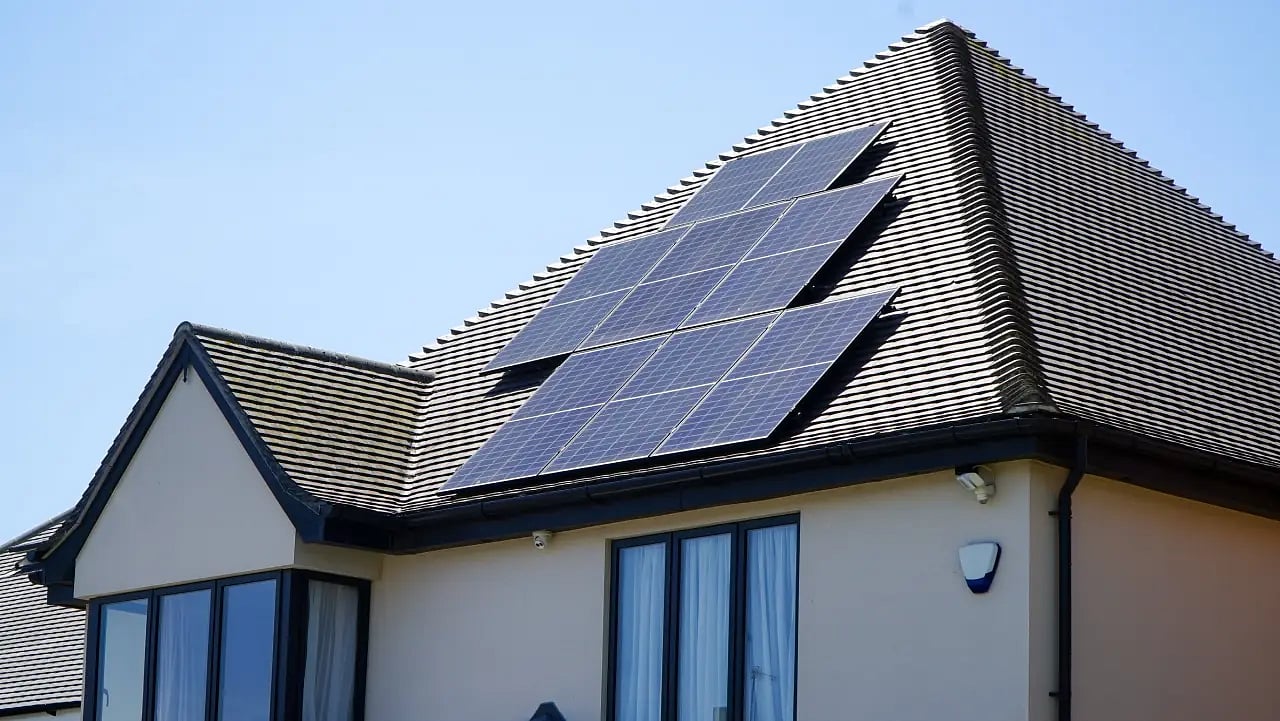Knowledge Hub

Navigating Homeowner’s Insurance & Solar Power
After months of unpredictable and prolonged power cuts, it seems that loadshedding is here to stay for South Africans. As a result, many of us are abandoning temporary measures in favour of long-term alternatives like solar power. February 2023 alone saw 700%[1] more renewable energy projects being registered than in all of 2021.
Adding solar power to your home means you can partly or totally free yourself from your dependence on the national electricity grid. However, this can come at a cost, so you'll want to ensure you've insured and protected these additions well into the future with solar panel insurance.
Keep reading to discover how Dialdirect's homeowner's insurance can help you do this.
What is solar energy, and how does it work?
Before you switch to solar power, it helps to know how it works to power your home.
Solar panels contain multiple connected photovoltaic cells. When sunlight hits each cell, it strikes the semiconductor material within it, releasing electrons which produce direct currents. As most homes require alternating current electricity, solar panels can connect to inverters to change its current. This is counted in kilowatts, with one kilowatt equalling a single unit of power of 1 000 watts. We measure consumption in kilowatt-hours, which is how much energy a 1 000 W appliance needs to operate in an hour.
Solar power is weather dependent, but as South Africa experiences many more sunny days a year than not, it’s a suitable solution for locals wanting to ease themselves off dependence on Eskom.
A possible downside to solar power is the relatively high initial cost of switching to a completely off-grid solution. You can keep your set-up affordable by combining gas, battery and inverter solutions to your solar-powered system to supplement your grid usage. Solar panels can power systems (like geysers, boilers or heaters) for improved savings and efficiency. You can also invest in a hybrid inverter, which monitors your electricity usage and supplements it with solar power if demand exceeds capacity. Some systems allow you to store excess power generated in batteries for later use. South African households may be able to share this excess power with the national grid in exchange for a reduced bill or rebate.
Whether you opt for a fully off-grid solar system or one of the above solutions, you can expect to recoup your investment in a few years. Provided you keep your panels in good shape, they can last for decades longer, adding significant value to the resale value of your home. This is where homeowner’s insurance comes in.
Is solar power a solution for loadshedding?
The use of solar power is an ideal solution to loadshedding, allowing your home to remain powered during unpredicted and prolonged blackouts seamlessly. However, there are other benefits:
● Improved safety and peace of mind: Crime thrives on darkness and offline security systems. Solar power means keeping your home secure and well-illuminated, making it a less attractive target. Deterring crime will also preserve your household contents insurance, keeping you from having to make claims to replace any items stolen from you due to loadshedding crimes of opportunity.
● Improved household costs and capabilities — Loadshedding is notoriously bad for appliances, and constant unpredictable power surges can damage essential appliances like freezers, air conditioners and washing machines. A solar solution that seamlessly kicks in when the power cuts out will protect these appliances and reduce their associated costs such as replacing spoilt food from a broken freezer or paying for laundry services because your washing machine no longer works.
It will add the most value to households with consistently high energy consumption. However, running your household entirely off the grid can also be challenging. Adding it as a supplement to your existing setup is ideal, as it means you won't be powerless during poor weather conditions. It's also costly and unnecessary to go completely off the grid full-time. For example, one household might be content using solar power to keep their basic appliances or lights on during loadshedding, leaving less important ones off during this period. Other households might need a more robust setup to ensure complex business or medical equipment can operate during prolonged blackouts.
So how does homeowners insurance come into play?
Do you need to insure your solar power system?
Yes, it’s highly advisable to insure your new investment with homeowners’ or buildings' insurance. This is because solar panels add value to your home - but you need to declare the addition so your premiums can be adjusted.
There are many other ways homeowners can add value to their property. You can install a pool for exercise and leisure, add a granny flat, extend the garage to park multiple vehicles or install a rainwater harvesting system to collect and purify rainwater. All these additions will add value to your home — but they need to be declared so that your homeowner’s insurance covers the new addition or renovations. Many assume that their homeowner’s insurance will automatically cover solar panels. However, as with any major structural changes to your home, you must declare it on time and use actual financial figures to create a realistic and reliable insurance premium Discover more about How home renovations impact your insurance.
If you don’t insure your solar panels, you will not be covered for any risk factors impacting the power source system. While a solar panel offers enormous value and benefits to your household, it comes with certain risks - it can be damaged by poor weather, develop a build-up of debris like leaves and dust, get stolen or damaged or malfunction due to age. Best to have this properly insured to cover any repair or replacement costs in the future.
Get homeowner’s insurance from Dialdirect
As you prepare to investigate and shortlist solar panel service providers, make sure that getting your solar power installation properly insured remains a top priority on your to-do list. Dialdirect can offer you a customised buildings or homeowner’s insurance package that covers your solar power system and the rest of your home. For more information, request a consultation today.
Sources:
[1] News24: SA solar boom: In Feb, 700% more private power registered than in whole of 2021
Disclaimer: The information in this article is provided for informational purposes only and should not be construed as financial, legal, or medical advice.

We Have Great
Insurance Products
Need car, home & Life Insurance? We offer a wide range of insurance products. Switch & get cash back on insurance premiums.




